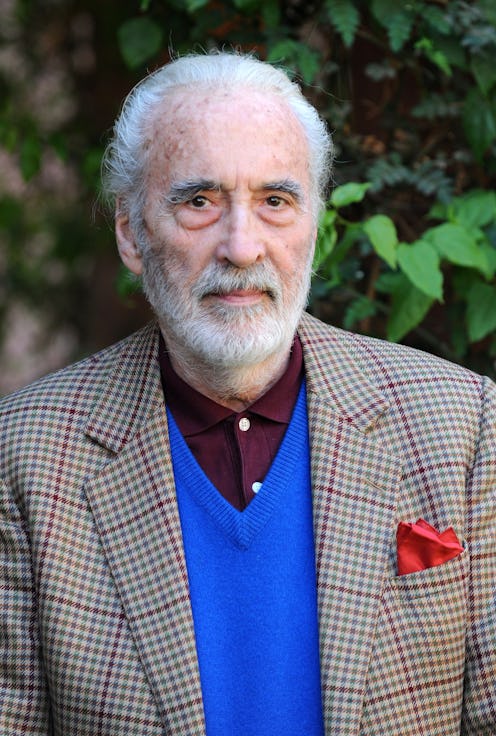Entertainment
A Look Back At Christopher Lee's First Film Role
With over 281 film credits to his name when Christopher Lee passed away this week, the 93-year-old was one of the most accomplished and prolific actors of his (or any) generation. While modern audiences know him largely from his roles as Saruman in The Lord of the Rings trilogy and Count Dooku in the Episodes II and III of Star Wars, he wasn't always starring in blockbusters. Christopher Lee's first film role was in Corridor of Mirrors, Terence Young's 1948 gothic fairy tale that received mixed-to-poor reviews at the time, but is generally thought of today as one of most surreal and visually striking movies made in Britain from that decade.
Corridor of Mirrors was the British response to the magical realism of French cinema in the '40s, and Lee's role in it was not a big one; he played a character named Charles. In fact, this film kicked off a decade of performing in small supporting roles for Lee until the late '50s, when he finally began acting in television and lead roles for Hammer Films. It was also the first feature film for director Terence Young, who would later go on to direct two Bond films (including From Russia With Love).
The New York Times slaughtered the film at the time with a review that feels particularly snarky today, considering it was 1948. Calling it an "irritatingly dull romantic fantasy," the reviewer found the lead male Eric Portman to be goofily miscast and the script (written in part by the female lead Edana Romney) to be overblown and tediously melodramatic. At one point in the review, the writer gives a sardonic summary of the moral of the movie:
"If a jaded, modern rich girl must find a romantic thrill, but still wants to keep her senses, then she shouldn't risk an adventure with a fellow who lives in the musty past and imagines her to be the reincarnation of a beauty in a 400-year-old picture with whom he has fallen in love."
The review doesn't mention Lee specifically, but does at least give kudos to the talent of the supporting cast. Modern critics have been somewhat kinder to the film in hindsight. Leonard Maltin (who thought Portman was great but Romney was terrible), lauded the film for its "stunning sets, photography, and musical score." William K. Everson said that, while Corridor of Mirrors doesn't necessarily work as a whole, it is still "a strange film, lyrical, romantic, sometimes quite moving."
While Lee's career was a bit slow on the uptake, he eventually went on to star in some of the most high profile projects in the history of cinema, including his most notable role as Dracula (which he played in ten movies spanning two decades). He became a regular collaborator with Tim Burton towards the end of his career and churned out expert performances in countless films right up until the end. His last film, Angels In Notting Hill, should be released later this year. Losing a star whose career spans from 1948 to 2015 is incredibly difficult, but Lee's legacy will last forever — a legacy that properly began with Corridor of Mirrors.
